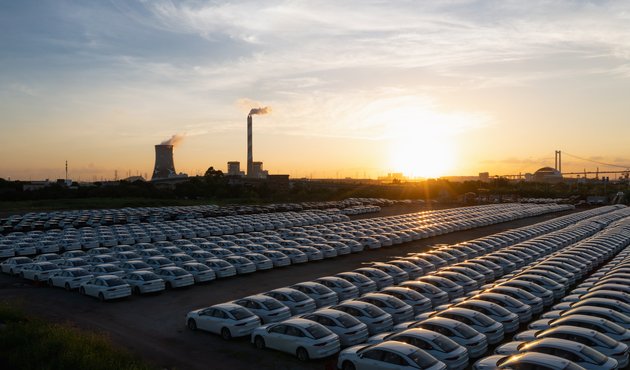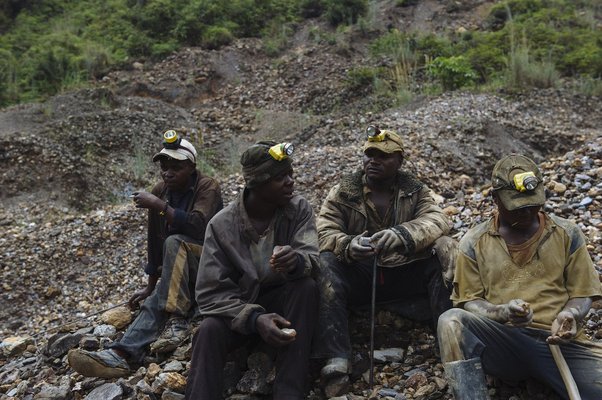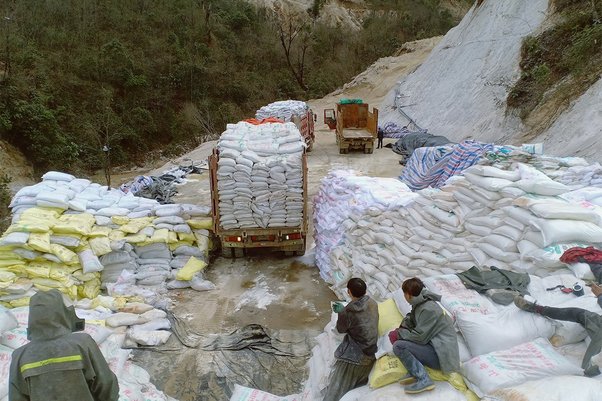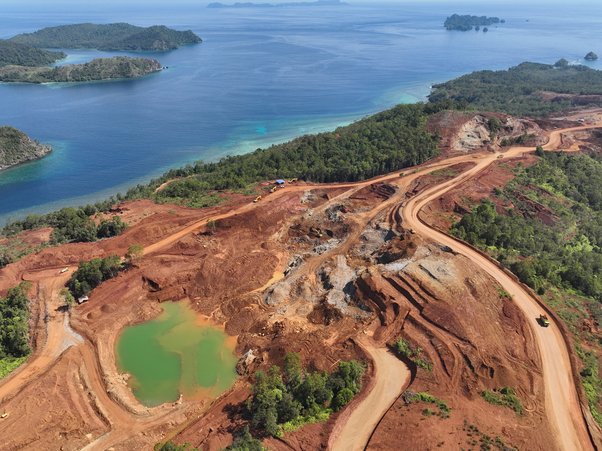New Global Witness investigation speaks to Indigenous communities fighting nickel mining in Raja Ampat. Campaigners call for permanent ban after largest mine in archipelago exempted from licence revocation
Global Witness has released a new undercover investigation featuring voices from those on the ground fighting damaging nickel mining in Indonesia's Raja Ampat archipelago in West Papua.
The multimedia report features accounts from a region described as an "Amazon of the Seas", which is under threat from a growing nickel industry, driven by global demand for EV batteries.
The investigation also provides new data highlighting the explosion in shipping traffic around Indonesia's two largest nickel hubs. Travelling to the site of a potential new nickel processing plant in Raja Ampat, the investigators highlight the impact that any expansion could have on Raja Ampat's indigenous communities, corals and mangroves. Indonesian nickel enters the supply chains of global automotive giants such as Tesla, Ford and Volkswagen.
Last week the Indonesian government revoked licences for four out of the five mining companies operating in the West Papuan region. However campaigners warn that this is not a permanent ban. The largest mine is still operating, and the decision is open to legal challenge. They say their fight will continue, highlighting that mining is taking place against the law on dozens of other small islands across Indonesia. Plans are also progressing to build a nickel smelter in Raja Ampat.
Global Witness Head of Policy Emily Iona Stewart said:
“Local campaigners are rightly celebrating the recent decision to revoke the licences of nickel miners that have been damaging their islands in what is such a fragile ecosystem. They say their fight will continue until the Indonesian government introduces a permanent ban there and on other islands.
“Our on-the-ground report reveals exactly what’s at stake in their struggle: damaged ecosystems and ruined livelihoods for an industry expanding often without the consent of local communities.
“A key driver of Indonesian nickel mining is for electric vehicle batteries. The climate crisis calls for an urgent energy transition, with electrification a key aspect. But mining for minerals must be just and fair. Companies like Tesla, Ford and Volkswagen should be aware of what automotive demand for electric vehicles means for environments like these.”
One of those Global Witness spoke to, Religious Leader John Warmasen said:
“We live on small islands; we don’t need electric cars … What do we use here? We use oars.”
Global Witness is releasing its report to help draw international attention to the communities’ struggle, to amplify the voices of those vowing to fight on for their islands.
The organisation’s investigators met with local activists who revealed opposition to the mining activities, raising serious concerns about transparency, consent, and the environmental impact of the complex nickel extraction and processing industry.
Across Indonesia the dash for nickel has brought intense conflict with communities whose ancestral land lies beneath the exploration zones. Evidence of land rights abuses and contamination of fisheries is piling up.
Shipping activity explodes
In 2020, Indonesia banned the export of raw nickel and required producers to purify it domestically before shipping it abroad. This has sparked an increasingly complex extraction and processing industry with industrial parks hosting their own coal-fired power stations to fuel smelting of nickel pig iron for stainless steel, to battery-grade nickel for the global EV market.
The report also details the rapid increase in shipping activity around the two largest nickel-based industrial parks, Weda Bay and Morowali. The main shipping lane from Sorong to Gag Island passes the nearby island of Penem, resulting in vessel noise and vibrations.
Local resident Yahya Saywai says vessels carrying heavy machinery to the mine on Kawe disturb the habitat, driving away fish and dolphins.
“It’s intrusive, it upsets the fishes that are there … they’ve got to find food, but then there’s the sound of those large boats.”
Nickel at what cost?
Nickel is a mineral critical to the green economy as a key component of electric vehicle (EV) batteries and Indonesia has the largest nickel reserves in the world.
In 2023 Indonesia produced over half (52%) of the world’s mined nickel. Already vital in creating alloys like steel, as global EV demand soars the International Energy Agency predicts that Indonesia will supply almost two-thirds of the world’s needs for the metal by 2030.
The government in Jakarta has made nickel a key part of its efforts to boost its economy, pursuing a deliberate policy of deregulation, tax incentives, subsidies and political support for mining companies and EV manufacturers.
Notes to editors
The full report can be found here.
A full library of multimedia relating to the investigation is available on request.



